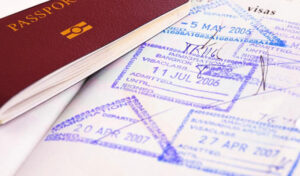Intellectual property (IP) plays a vital role in fostering innovation and creativity in Thailand, a country that values entrepreneurship, culture, and technological advancement. From protecting creative works to safeguarding trademarks and inventions, Thailand’s intellectual property laws align with international standards while addressing local business needs. This comprehensive guide explores the types of intellectual property, the legal framework, and the procedures for IP protection in Thailand.
Legal Framework for Intellectual Property in Thailand
Thailand’s IP laws are primarily governed by the Department of Intellectual Property (DIP) under the Ministry of Commerce. The country is also a signatory to various international agreements, ensuring compliance with global standards.
Key Legislation
- Trademark Act (B.E. 2534, as amended)
Protects logos, brand names, and marks associated with goods or services. - Patent Act (B.E. 2522, as amended)
Governs inventions, designs, and utility models, granting exclusive rights to innovators. - Copyright Act (B.E. 2537, as amended)
Covers original works such as literature, music, films, and software. - Trade Secrets Act (B.E. 2545)
Provides protection for confidential business information. - Geographical Indication Protection Act (B.E. 2546)
Protects products associated with specific regions, such as Thai silk or jasmine rice. - Plant Variety Protection Act (B.E. 2542)
Safeguards new plant varieties and agricultural innovations.
International Treaties
Thailand is a member of several international agreements, including:
- World Trade Organization (WTO) and the TRIPS Agreement.
- Paris Convention for the Protection of Industrial Property.
- Berne Convention for the Protection of Literary and Artistic Works.
- Madrid Protocol for international trademark registration.
Types of Intellectual Property in Thailand
1. Trademarks
A trademark is a symbol, word, or design that identifies and distinguishes goods or services.
Protection Scope
- Distinctive marks, trade names, and logos.
- Certification and collective marks.
Registration Process
- File an application with the DIP.
- Conduct an examination to ensure compliance with the law.
- Approval or rejection is published in the Trademark Gazette.
2. Patents and Utility Models
Patents protect inventions or processes that offer new and useful functionality, while utility models cover minor innovations.
Eligibility Criteria
- Novelty: The invention must be new.
- Inventive Step: It should not be obvious to a skilled person in the field.
- Industrial Applicability: The invention must be usable in industry.
Registration Process
- Submit an application to the DIP.
- Examination for compliance with patent requirements.
- Publication and granting of the patent.
Patents are valid for 20 years, while utility models are protected for 10 years.
3. Copyright
Copyright protects original works of authorship, including literature, music, films, and software.
Automatic Protection
Copyright arises automatically upon creation without the need for registration.
Duration of Protection
- Life of the author plus 50 years.
- For corporate works, 50 years from publication or creation.
4. Trade Secrets
Trade secrets include confidential business information, such as formulas, manufacturing processes, or customer lists.
Protection Requirements
- Information must not be publicly known.
- Reasonable steps must be taken to maintain confidentiality.
5. Geographical Indications (GIs)
GIs protect products associated with specific regions, reflecting their unique qualities. For example, Thai silk and Chiang Mai coffee are registered GIs.
Why Protect Intellectual Property in Thailand?
1. Safeguard Innovations
IP protection ensures exclusive rights to innovations, preventing unauthorized use or replication.
2. Enhance Business Value
Registered IP assets enhance brand value and attract investment opportunities.
3. Comply with Global Standards
Protecting IP under Thai law ensures compliance with international agreements, facilitating global trade.
4. Prevent Infringement
Legal protection allows IP owners to take action against infringers, minimizing economic losses.
Enforcement of Intellectual Property Rights
1. Civil and Criminal Remedies
IP owners can seek civil remedies, including damages and injunctions. Criminal penalties, such as fines and imprisonment, may apply in cases of willful infringement.
2. Customs Enforcement
The Thai Customs Department monitors imports and exports for counterfeit goods, working closely with IP owners.
3. Alternative Dispute Resolution (ADR)
Mediation or arbitration is often used to resolve IP disputes efficiently.
4. Court Proceedings
Thailand has specialized Intellectual Property and International Trade Courts to handle IP disputes. These courts ensure expert handling of cases and expedite resolutions.
Challenges in Protecting Intellectual Property in Thailand
- Counterfeiting and Piracy
- Widespread availability of counterfeit goods poses a challenge to IP owners.
- Solution: Regular monitoring and collaboration with authorities.
- Complex Registration Processes
- Foreign applicants may find IP registration procedures complex.
- Solution: Hire legal professionals familiar with Thai IP law.
- Limited Awareness
- Small and medium enterprises (SMEs) often overlook the importance of IP protection.
- Solution: Government initiatives to raise awareness among businesses.
Tips for Effective Intellectual Property Protection
- Register Early: File for registration as soon as possible to secure rights.
- Monitor Markets: Regularly monitor for potential infringement.
- Engage Experts: Work with legal professionals to navigate IP laws.
- Leverage Technology: Use online tools for IP monitoring and enforcement.
- Educate Employees: Train staff to recognize and respect IP rights.
Role of Legal Professionals
Legal professionals provide invaluable assistance in IP protection, including:
- Advising on the appropriate type of IP registration.
- Filing applications and navigating the registration process.
- Representing clients in enforcement actions or disputes.
Conclusion
Intellectual property protection in Thailand is essential for safeguarding innovations, promoting business growth, and ensuring compliance with global standards. With a robust legal framework and specialized courts, Thailand offers comprehensive mechanisms to protect trademarks, patents, copyrights, and other IP rights. By understanding the legal landscape and seeking professional guidance, businesses and individuals can secure their intellectual assets and thrive in the competitive market.










